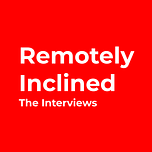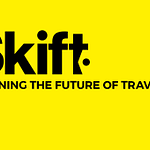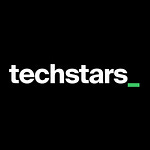Hi,
Welcome to Remotely Inclined, a newsletter about remote work and remote entrepreneurship. If you’d like to sign up, you can do so here. Or just read on…
If you follow tech news, you’ve probably heard of Andrew D’Souza or his company Clearbanc. D’Souza was an angel investor and entrepreneur before Clearbanc, but catapulted to the big leagues when he and partner Michele Romanow (a successful entrepreneur in her own right and star on Dragon’s Den) raised $300 million for their company on the premise that they could give startups better financing than traditional banks.
So when D’Souza published a video in Fall 2019 that Clearbanc “[doesn’t] have a remote work culture,” it raised a few eyebrows. People questioned whether Clearbanc would be able to attract top talent or build a company in 2019 and beyond if they dismissed remote work out of hand. D’Souza stood his ground, saying it’s not that he hated remote work for everyone… just that he didn’t feel it would ever work for Clearbanc.
Enter COVID-19, and Clearbanc is fully remote in response to the pandemic. And it seems to be working for them.
So I caught up with D’Souza to hear how things are going - and see if his perspectives on remote work have changed at all (spoiler: they have).
From never-remote to remotely-productive
A big reason D’Souza felt remote work wouldn’t be good for Clearbanc came from his experience building Clearbanc in the early days, when the five co-founders would spend all day together in the same apartment working, getting a lot done.
As an entrepreneur, D’Souza gets his creative energy from bouncing ideas off of people - he felt he would not be able to replicate that in a remote work environment.
When the company went fully remote in response to COVID, D’Souza learned that a real challenge was not “building the muscle” of remote communication and not laying down the necessary infrastructure to empower remote collaboration.
An unfounded concern
D’Souza mentioned that in the back of his mind he assumed that people in remote work environments would take advantage, being lazy and not delivering work.
Once Clearbanc went remote, he realized “almost the exact opposite” from the team. He realized that it’s more about hiring the right people (that is to say: people who want to take ownership and be entrepreneurial), providing them with the right tools, and trusting them to put in the work.
A big part of the success was shifting up their communication structures to include digital team meetings and all-hands meetings, where D’Souza jumps in and out of different ones on a regular basis.
All or nothing is easier than hybrid
Being forced to go remote has made D’Souza realize he can run a successful company with more flexibility - especially now that they have critical ‘remote’ infrastructure in place.
However, a hybrid model opens up a new challenge: how to ensure that in-office and remote employees are given the same employee experience.
He’s also concerned about intruding in people’s lives who work remotely while still getting the energy of ad-hoc conversations like the ones that happen in office environments.
The final word
“I certainly have had to eat my words [about remote work] a little bit... but it’s been a fun challenge as a CEO to navigate through.”
Psst! Liking this newsletter? Why not share it with a friend or five?
Remotely Inclined Chats with Andrew D’Souza
Transcript edited for brevity and clarity.
Stefan: Welcome, Andrew! To kick it off, let’s talk about that LinkedIn video where you said you would never do remote work. Can you explain more about your perspective on this?
Andrew: It’s ironic and we’ve been put into an interesting situation having to be remote at Clearbanc. We started the company with the idea of creating a new financial instrument for founders. Both Michele and I lived and breathed the ups and downs of raising capital, whether it’s equity or venture capital, and saw the costs associated with raising capital and managing investors.
So when we started the company, we started it out of our condo. Then we got into YCombinator and moved down to San Francisco where we lived in an Airbnb for eight months. And then when we moved back to Toronto to scale the team, we would work from our home (until we got to about 16 people).
When we talked about our philosophy around remote work, it wasn’t dogmatic. It wasn’t that no companies should be doing remote work. It was just organically the way our company evolved and our communication systems evolved to be more about hallway conversations, serendipitous interactions, and the sort of entropy that happens in a high-energy environment.
Are you able to reach the same level of energy now that you’re remote?
So most of what I was referring to happened outside of normal working hours. It was either early in the morning or after everybody finished their last meeting at six o’clock. It’s just people sitting around saying ‘hey, have we ever thought about this - what if we did it this way?’
That led to most of our major product innovations. So that was what I was afraid we’d lose. When we went remote, it took a different form. In the first few weeks, people were still online. When you don’t have anything to do, you can ping someone at 8 or 9 pm with an idea. So we ended up recreating those brainstorm conversations. And it got to the point where we realized we were actually taking up too much of people’s time and people weren’t sleeping - we were over-focused on work. But in a normal work environment, people have things to go to in the evenings, so it may feel intrusive to ping people later on.
Did you not ever digitally ping people when you worked in an office but went home for the evening?
I wouldn’t say never. You certainly will get a ping from somebody with an idea. But I think it comes down to it being more organic and less intrusive. I don’t want to intrude on whatever else they’ve got going on or their other responsibilities.
There’s just a bit of a barrier with remote. Because when I look across the office and I see someone’s ordering dinner, you can go chat with them over dinner. You feel less bad about including them in the conversation.
So I’m not saying that this is the right way to run a business. Certainly there’s downsides to the concept of ordering dinner at the office, it may not be for everyone. But it’s the way we’ve evolved as a company.
So it’s about giving someone permission to be part of the conversation, so you don’t get the sense you’re bothering them?
Yeah, exactly. It’s knowing that everybody is in the same headspace and context to have the freedom of a brainstorming discussion.
For example, if you book a brainstorming session from 2-3 pm, at 2:55 pm, no one is going to bring up a new thread.
Couldn’t you just move the brainstorming session to the end of the day?
Yeah - that was one of the plans we had. Before we went remote due to COVID, we were going to schedule a brainstorming session twice a month for a couple of different topics and either have people stay later or dial-in remotely.
A few questions from social media: How have you shifted your daily communication?
We’ve had to brute-force it a bit.
We start with a company-wide all-hands meeting on Monday mornings and on Friday afternoons we have demos and recap the week. We now do those remotely.
Every day, each of the core teams or teams with core initiatives have a standup and I rotate and join each one on a round robin basis.
And then there’s an optional 5 pm all-hands where it’s basically an AMA in terms of anything that has come up that day or questions and concerns that have come into people’s minds. It’s also an opportunity for Michele and I to share how our perspective is evolving on our situation, the market, and our company. We try to be really transparent with our team and we’ve found that to be pretty energizing. People look forward to it and we’ve started to bring in special guests, such as our board members or clients.
How has remote work impacted your output?
I think the volume of work has probably increased. I think part of it is the fact that people aren’t commuting and things, but also I think it’s because people don’t have any other plans. I think that’s why we were so productive in the early days of the company - because we didn’t have any plans. We didn’t know anyone, so we lived together, we’d work together, and we’d go eat dinner together. That’s what it takes to create something out of nothing.
Work output from the team has increased because people pour themselves into the work - maybe as a bit of a distraction.
Coordination has been more difficult, probably because we never put the foundations and infrastructure in place to coordinate communications across teams remotely. So it has felt like there’s been more crossed wires lately. But part of that is just pace. We’re trying to react really quickly to a very uncertain and ever-changing environment. And we’re changing our plans and priorities according to what the market, data, and our customers say.
Do you think that remote communication muscle is a good one to flex in general, not just during the pandemic?
Yeah. We’re at about 200 employees. That’s probably the scale where you want to create some more scalable communication systems and decision making frameworks. To be honest we needed to do it quite a bit earlier than that. We’ve gotten around it through the informal, organic communications that have happened in the company, but I think it’s certainly shining a light on the fact that we would operate much faster and more efficiently if we were better at communicating decisions, priorities, and creating more of a structured information flow.
I don’t think we’ll ever be best in class at that, given how we operate. But I don’t want that to be what handicaps us.
Offices are a huge expense for any startup - wouldn’t remote work empower more entrepreneurs?
Thinking about whether having an office is a barrier for people starting companies… it shouldn’t be. For us, what worked was working out of our home. But for other people, I think starting remote could be as good if not better. It’s personal and depends on the type of company you want to build. It also depends on where you are and who you are as an individual.
I believe that starting a company requires some outsized belief and heavy lifting to be able to get it off the ground. And what drives that energy for me is being shoulder to shoulder with someone. Michele and I live together - that’s probably part of what keeps us going.
I’m not sure if I can replicate that model remotely. But I’m sure there are some people that can, and I think they can build a much more flexible and scalable operating model.
Have you been pleasantly surprised by any element of working remotely?
Yeah. I don’t think I ever explicitly stated this, I think I probably subscribed to this idea that if you have people work remotely they’ll slack off or they won’t be as engaged. I have seen almost the exact opposite from our team. Our team is special and very entrepreneurial, but I also think the structure of remote work - giving people autonomy - drives more ownership and accountability to every individual in the company.
If you hire the right people who are hungry for ownership, then put them into a remote environment and trust them, you will see great work and great ideas.
Now that you have this infrastructure, will Clearbanc have more work flexibility in the future?
Yeah - I’ve communicated this with our team. I don’t think we should be the first people back in the office, even after the government gives the green light.
As much as I miss our team and I miss the energy, we’re going to be slow to pull that trigger. But that said I think we’re certainly going to be open to some full-time remote people or people taking a few days to work remotely.
The hard part, to be honest, will be replicating the experience. When everyone is remote or in-office - everyone is getting the same experience and you’re designing for that experience. What I’d like to do is push our team and myself to build an experience where it is as close to the same experience for people who are remote as it is for in-office. I think that’s the real challenge.
Some companies have already done a great job of it and I think we start to grow a global footprint and open offices in new countries, it’s something we will have to do. But we’ve kicked that can down the road to date.
Even though we’ve got a passable way of operating as a fully remote team, I think the challenges of the bar for being a hybrid remote team are even higher.
Absolutely - it’s a tough balance.
It’s always fun to talk about this stuff. And you know I certainly have had to eat my words a little bit. But it’s been a fun challenge as a CEO to navigate. I’ve been personally challenged more than in the previous four or five years of running the business. I’m always open to new suggestions and ideas.
Amazing, thank you for your insights!
You can get in touch with Andrew on Twitter.















Share this post